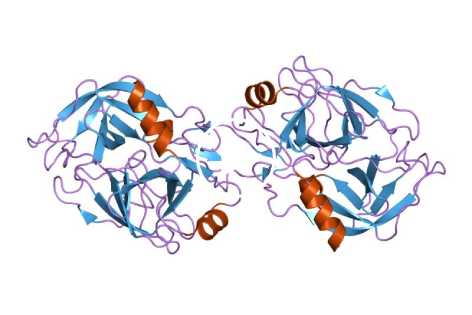
LMU 25 – The Power of Protease Inhibitors: A Potential Defence Against Cancer
Source: Journal Nutrition and Cancer 2012
Lifestyle Medicine Update (Sept 29, 2016)
Introduction
When it comes to cancer prevention, the role of nutrition cannot be underestimated. Among the many food-based nutrients that show significant anti-cancer properties, protease inhibitors stand out as an important group. Protease inhibitors can combat cancer by interfering with key proteins required for cancer cell division and invasion. Among the protease inhibitors, the Bowman-Birk protease inhibitor found in soybeans has been extensively researched and shown to have remarkable effects against several types of cancer cells without affecting normal healthy cells. Recent studies have also revealed that other legumes, such as chickpeas and kidney beans, contain protease inhibitors that could hold promise in inhibiting cancer development and growth.
The Power of Protease Inhibitors
Protease inhibitors are a class of compounds that have been found to block important steps in cancer development. Their mechanism of action involves preventing the synthesis of specific proteins that cancer cells require to divide and invade neighboring tissues and organs. Furthermore, protease inhibitors have proven the ability to destroy premalignant cells and block the initiation of the cancer process.
The Bowman-Birk protease inhibitor found in soybeans and soy products has been the subject of extensive research and has shown impressive results against human cancer cell lines and animal-based cancer models. Importantly, this inhibitor targets cancer cells and precancerous cells while sparing normal healthy cells, making it a promising candidate for cancer prevention.
Expanding the Scope: Protease Inhibitors in Other Legumes
The question arises as to whether protease inhibitors are unique to soybeans or if other legumes also contain appreciable amounts of these compounds with anticancer properties. A study published in the journal Nutrition and Cancer in 2012 shed light on this subject. The researchers found that protease inhibitors in chickpeas significantly inhibited the viability of specific breast and prostate cancer cells at reasonable concentrations. Additionally, protease inhibitors from kidney beans, soybeans, and mung beans were found to inhibit the growth of certain types of prostate cancer cells. These findings suggest that protease inhibitors from chickpeas, kidney beans, and mung beans may have similar anticancer properties to those found in soybean’s Bowman-Birk protease inhibitor.
The Role of Legumes in a Healthy Diet
Chickpeas, kidney beans, and other legumes are already known for their health benefits. They play a crucial role in regulating blood sugar, lowering cholesterol, supplying health-promoting fiber to the large bowel, and supplying added protein to the diet. Despite their benefits, legumes have become less prevalent in the modern Western diet, which is often rich in starchy foods like bread, pasta, rice, and potatoes.
One simple and effective dietary adjustment to enhance health on multiple levels is to replace some of these starchy foods with legumes, such as beans and peas. In countries where legumes are a main feature of the diet, there is evidence of reduced risk of certain types of breast, prostate, colon, and other cancers. Additionally, including more legumes in the daily diet can contribute to a decreased risk of heart disease, better management of diabetes and high blood sugar, and improved weight management.
Conclusion
The power of protease inhibitors as potential cancer fighters has emerged as a promising area of research. The Bowman-Birk protease inhibitor found in soybeans has already showed impressive results against several types of cancer cells. Furthermore, recent studies have shown that other legumes, like chickpeas and kidney beans, also contain protease inhibitors with potential anticancer properties. By including more legumes in our diet, we not only tap into the health-promoting benefits they offer but also take a proactive step towards reducing the risk of cancer and other chronic diseases.
References:
- Magee, P.J. et al. Chickpea (Cicer arietinum) and Other Plant-Derived Protease Inhibitor Concentrates Inhibit Breast and Prostate Cancer Cell Proliferation In Vitro., Nutr. and Cancer, 2012. Vol 64. No. 5, pp741-748 (http://www.tandfonline.com/doi/full/10.1080/01635581.2012.688914#tabModule)

Dr. James Meschino
ABOUT THE AUTHOR
Dr. James Meschino, DC, MS, ROHP, is an educator, author, and researcher having lectured to thousands of healthcare professionals across North America. He holds a Master’s Degree in Science with specialties in human nutrition and biology and is recognized as an expert in the field of nutrition, anti-aging, fitness, and wellness as well as the author of numerous books.


